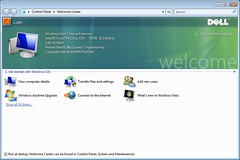This is Holy Week. I have to preach three different sermons in the next six days. I also have three members of my congregation in hospital settings. So of course I would be summoned to jury duty.
I arrived at 8:30, along with 60-odd friends and neighbors. At 8:45, the judge’s admin assistant gave us a good-humored lecture about fulfilling our vital role in the cogs of justice or something like that. Then we got to see a videotape about our vital role in the cogs of justice, while she ran our summons through the bar code reader. (Two people were able to be excused at this early point on account of felony convictions. Two full-time students, on the other hand, were told to tell it to the judge.) Finally, at 10:15, we were ushered into the courtroom. After a few minutes, the bailiff told us to rise, the judge came in, and he swore us to secrecy. (Maybe. I don’t remember what, exactly, we agreed to do, because at the end, instead of saying, “so help me God,” or something like that, he only had us say, “I do.”)
He listened to people whining about having a life, etc. I told him I had an out-of-town conference coming up, but it’s far enough off that he said they could still seat me and then excuse me toward the end of the trial. That is, he’s okay with wasting a couple of weeks of my time listening to evidence and then excusing me as the trial winds down, because he doesn’t want to impose a hardship on me.
After he’d failed to excuse about 45 or 50 of us, they seated 18 in the nice seats. The judge started quizzing them about how many reasons they had to hate lawyers and cops. He also asked if they hated people who did [what the accused was accused of doing]. Only two people were able to be excused at that point: both because they personally knew San Bernadino County sheriffs deputies and had previously discussed this particular case. (Good call.)
When the judge had quizzed the 18, the two lawyers were given the opportunity to do the same. The defense lawyer was harder to listen to, partly because he was soft-spoken and partly because he’s dull. There were three points he wanted to belabor: (1) it’s okay if the defendant doesn’t testify, (2) sheriff’s deputies are neither more nor less likely to be wrong about things or even lie than normal people, and, especially, (3) you can’t convict someone just because you thought the evidence proved him guilty, but only if the evidence proved him guilty beyond a reasonable doubt. That last one must be a tricky idea to communicate, because he kept beating it like a dead horse or something.
The assistant D.A. was only a little bit better. He wanted to be sure the jurors knew that, despite what they might have heard on Matlock or Law and Order, they were permitted to convict someone based on circumstantial evidence. In fact, pretty much all he wanted was for us to ignore anything we knew about the law from TV shows. That and agreeing that people in the defendant’s situation were no less likely to lie than sheriff’s deputies.
That took us all the way to 11:30, and the judge excused us for lunch. When we came back at 1:30, we got hectored for awhile, then the lawyers took turns unloading jurors. The defense attorney got rid of a few people, but he quit after a while and pronounced himself happy with the composition of the panel. The D.A. got rid of two more, bringing us down to 12, so everything stopped so they could seat another batch of 6.
I was the first to be called to that second batch, so call me potential juror number 19. The judge quizzed us some more, then the defense attorney and the prosecutor did the same, and they began with the peremptory challenges again. The defense attorney was happy with the panel again, and the D.A. excused yet another person, and the bailiff motioned for me to go get in one of the nice seats. I sat down, and was renamed juror number 4.
That lasted for about 30 seconds, until the defense attorney asked the judge to thank and excuse me. I got my pink slip to prove I’d wasted my whole day and got out at 4:00 on the dot.
In my next post, I’ll write about why I got dumped.

